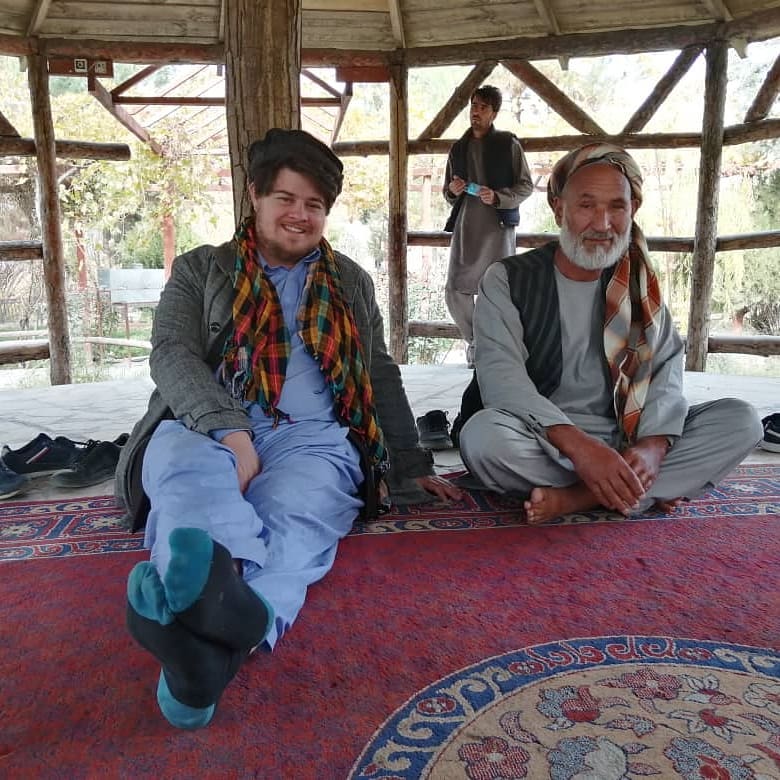Many people have heard of the last Jew/s of Afghanistan, but less have thought about the last Synagogues, which despite there now being no Jews left still sit in the centre of bustling cities like Herat and Kabul.
The history of the Jewish people in Afghanistan dates back thousands of years, pre-Islam and pre-Christianity. Of the world’s major religions, only Buddhism has a longer history in Afghanistan. During the 20 th century, most Afghan Jews migrated looking for a better life, and by 1969 there were only roughly 300 left, down from tens of thousands. By the time we got to the first Taliban takeover of Afghanistan in 1996, only 10 Jews were left.
During the Taliban’s first reign, there were then only two left - that we knew of. It’s since come to light that a Jewish woman, Tova Moradi, who married a Muslim man and hid her Jewishness, was also still in the country and technically can be considered the last Jew in Afghanistan until she left in late October 2021. Until we learned about this lady, the last two Jews that we knew of were Ishaq Levin and Zablon Simintov. Zablon Simintov left in September 2021, and had previously been known as the last Jew in Afghanistan.
The main problem with these two “last Jews in Afghanistan”, Ishaq Levin and Zablon Simintov, was that they hated each other so much that all they did was argue, fight and even turn each other in to the Taliban. It gets even funnier – they were both being held in a Taliban prison cell together, until their captors got so sick of their fighting and bickering that they released them!
But back to the last Synagogues in Afghanistan. In Herat there is one ancient Synagogue that you can visit, but has not been used in decades, as all of the remaining Jewish families left for Israel. There are also three other former Synagogues in Herat, but they have been converted into a mosque and two schools. The Synagogue that can still be visited is known as Yu Aw and is reportedly centuries old, although no exact date of construction is known.
During the war with the Soviets in the 80s and then the civil war in the 90s, Yu Wa was greatly damaged. In 2009, the Synagogue was completely restored by the local government with funding from the Aga Khan foundation. This Synagogue is unique in that it is in a Perisan-Jewish design, a unique style different from Synagogues you would find anywhere in the world, except of course in Iran.
You’ll still find the traditional layout with prayer hall, partitions for the women’s section, the bimah and Hebrew inscriptions adorning the walls. In October 2022, the Taliban actually put aside half a million dollars to ensure the building’s structural integrity and also restore the mikvah – a bath used for ritualistic bathing in Jewish traditions.
The last operating Synagogue located in the centre of Kabul, which stopped operating with the departure of Simintov in 2021, is non-descript from the outside except for some small stonework with the Star of David design. To enter you need to go through a restaurant and then up some crumbling stairs. When you finally arrive at the door, you then realise you’re at something a little a different from everything else you’ve seen in Afghanistan. The script all of a sudden changes to Hebrew and religious symbols which many would consider the anthesis of Afghan culture lines the walls and windows.
Efforts to preserve this unique historical site have been ongoing. The previous Afghan government, recognizing its cultural significance, had taken steps to protect the Synagogue from deterioration. International organizations, cultural enthusiasts, and the global Jewish community also played a role in advocating for its preservation.
The Synagogue, known as the Yahya-e-Jalali Synagogue, is a place of worship and a repository of Afghan Jewish heritage. It contains sacred Torah scrolls, religious artifacts, and documents that provide insights into the community's traditions, rituals, and history, and today, the last Synagogue in Afghanistan stands as a testament to a fading chapter in its history.


